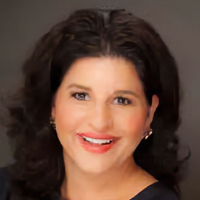 Chico DUI-DWI Lawyers, Texas
Chico DUI-DWI Lawyers, Texas
Sponsored Law Firm
-
 x
x

Click For More Info:
-
Law Office of Robert R. Jones III
2411 Emancipation Ave, Suite 202, Houston, TX 77004» view mapCriminal Defense Expert Representation for Reasonable Rates
If you need representation, call me 24/7.
800-883-8760
Sponsored Lawyers
1-10 of 17 matches
Criminal, DUI-DWI, Expungement, White Collar Crime, Juvenile Law
Attorney Timothy D. Godwin, the founding attorney of Godwin Law Firm, PLLC, brings a robust focus in criminal defense. With a Juris Doctor degree from Texas A&M, Timothy leverages his academic background and a sharp legal acumen to serve clients effectively. His practice areas address a wide range of legal scenarios, ensuring that each client receives thorough and attentive guidance. Primarily centered on criminal defense, Attorney Godwin works on matters including felonies, traffic tickets, expunctions and more. As a dedicated legal professional, Timothy is committed to understanding and addressing the unique needs of each case, providing tailored advice and robust defense strategies. To schedule your free consultation with the Decatur Criminal Defense Attorney, please fill out a form online or call us at 940-255-0000.
(more)DUI-DWI, Estate Planning, Family Law, , Criminal
After years of being entrenched in the criminal justice system, we understand that even the most innocent acts can lead to arrests. We are fully aware how quickly a minor argument or regular night out can spiral into physical charges and DWIs. No one ever intends for themselves to be charged with a crime - yet it happens all too often. No matter if this is your initial criminal charge or you have prior experience in the system, we are here to help. Our lawyers will be at your side on court dates and work behind the scenes to uncover any advantageous evidence that can prove useful in building your defense. We offer complimentary consultations as well as case evaluations with no cost and without pressure - simply reach out to us, and we'll assess every aspect of your situation! Whether accused of a minor offense such as marijuana possession or more serious felonies including sex crimes, our lawyers are here to strive for the most favorable resolution. When it comes to violent crimes, state prosecutors take them very seriously and often fail to consider that there are always two sides to every story; you may have been defending yourself or in an altercation with another person. Therefore, we begin each case by thoroughly researching all facts in order to build a strong defense strategy tailored specifically to your needs! To schedule your free consultation with the Weatherford Criminal Defense Attorney, visit us online or call 817-599-7005.
(more)Criminal, DUI-DWI, White Collar Crime, Domestic Violence & Neglect, Juvenile Law
As a Fort Worth defense attorney, Cody has worked privately defending hundreds of clients and was also appointed as an Assistant Federal Public Defender. His trial experience includes practically every kind of criminal charge: sex trafficking, drug conspiracy, murder, theft, DWI, and white-collar crimes. He has argued appeals in state and federal court, including the Texas Court of Criminal Appeals; Fort Worth Second Court of Appeals; and the Fifth Circuit Federal Court of Appeals. Cody regularly teaches evidence and trial advocacy to other attorneys. Meet with Cody to talk about your Tarrant County or Federal criminal case, and to ask about his 10 years as a criminal trial attorney.
(more)Criminal, Identity Theft, Personal Injury, White Collar Crime, DUI-DWI
John Robinson has been licensed to practice in Texas since 1991 and attained Board Certification in Criminal law from the Texas Board of Legal Specialization in 1998. His Board Certification is a mark of excellence and a distinguished accomplishment that only one in ten Texas attorneys attains. That Certification indicates that Mr. Robinson has substantial, relevant experience and has demonstrated the same in his representation of clients accused of committing crimes. Mr. Robinson is relentlessly committed to the protection of the constitutional rights of every client. For that, Mr. Robinson is respected throughout Dallas County and surrounding Counties. His experience in preparation, negotiation, and the trial of criminal cases is unparalleled. With over twenty five years of experience throughout the Dallas/Fort Worth area, Mr. Robinson has successfully defended hundreds of clients. His results include numerous dismissals and not guilty verdicts at trial.
(more)


 Robert Jones San Antonio, TX
Robert Jones San Antonio, TX AboutLaw Office of Robert R. Jones III
AboutLaw Office of Robert R. Jones III Practice AreasSpecializations
Practice AreasSpecializations




